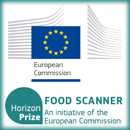Call for Abstract
Scientific Program
5th Euro-Global Summit and Expo on Food & Beverages , will be organized around the theme “Healthier the Food, Merrier the World”
Euro Food-2015 is comprised of 15 tracks and 97 sessions designed to offer comprehensive sessions that address current issues in Euro Food-2015.
Submit your abstract to any of the mentioned tracks. All related abstracts are accepted.
Register now for the conference by choosing an appropriate package suitable to you.
- Track 1-1Food processing and technology
- Track 1-2Biotechnology based methods
- Track 1-3Genetically modified food
- Track 1-4Recent instrumentation and strategies for advanced food quality
- Track 1-5Organic crops and food stuffs
- Track 1-6Protein based diet
- Track 1-7Gluten-free foods
- Track 1-8Rethinking R & D and technology
- Track 1-9New food research and development strategies
- Track 1-10Strategies for fast development of analytical methods
- Track 1-11Recent trends in application of molecular biology based methods in food analysis
- Track 1-12Food and health: Nutrigenomics
- Track 2-1Current and emerging nano-science applications for sustainability, nutrition, flavors, food processing and engineering
- Track 2-2Qualitative and quantitative analysis of nanoparticles in food
- Track 2-3Nano science diagnostics
- Track 2-4Nano-carrier systems for delivery of nutrients and supplements
- Track 2-5Nano-coatings on food contact surfaces
- Track 2-6Nano-sensors for food labeling
- Track 2-7Organic nano-sized additives for food
- Track 2-8Processed nanostructured or textured food
- Track 3-1Scientific determination of the origin of food and drink
- Track 3-2Determination of Organic production systems
- Track 3-3Detection of fraud or counterfeit products
- Track 3-4Brand Protection
- Track 4-1Flavors and odors
- Track 4-2Natural food additives
- Track 4-3Addition of herbal extracts
- Track 4-4Food Grade Lubricants
- Track 4-5Sustainable Natural Colors: Challenges of Reformulation
- Track 5-1Increased shelf life
- Track 5-2Bioanalytical Methods for Food Control
- Track 5-3General Food Analysis
- Track 5-4Rapid methods
- Track 5-5Fundamentals of sample preparation method development in food analysis
- Track 5-6New research challenges in food quality and safety control
- Track 5-7Natural preservatives: A consumer perspective
- Track 6-1Fermented foods and beverages
- Track 6-2New development in beverages analysis
- Track 6-3Fermentation equipments
- Track 6-4Advanced techniques
- Track 6-5Bioreactors and cell culture systems
- Track 6-6Application of enzymes in bioprocess
- Track 6-7Bioreactor design, instrumentation, control and automation
- Track 6-8Fermentation extravaganza: A new revolution for food and beverages
- Track 6-9Fermentation aspects in new product development
- Track 6-10Optimizing cell culture process
- Track 6-11Future prospects for cell culture systems
- Track 7-1Food allergens
- Track 7-2Mycotoxins, marine and plant toxins
- Track 7-3Processing contaminants
- Track 7-4Residues pesticide
- Track 7-5Natural Toxins Analysis
- Track 8-1Risk Assessment and Risk Management
- Track 8-2Land Availability
- Track 8-3Economics
- Track 8-4Safety
- Track 8-5Industrially relevant product and issues
- Track 9-1Biologically active, health promoting food components
- Track 9-2Probiotics
- Track 9-3Manufacturer Case Studies
- Track 9-4Food structure and functionality
- Track 9-5Innovative ingredients and processes
- Track 10-1European food engineering highlights
- Track 10-2European food and health
- Track 11-1Marketing and business strategy
- Track 11-2Type of food and beverages in European market
- Track 12-1Packaging techniques
- Track 12-2Food labeling
- Track 12-3Nano-enabled food processing and packaging
- Track 12-4Food dehydration
- Track 12-5Oil saving technologies and process optimization
- Track 12-6Food packaging and transport control
- Track 12-7Novel food technologies
- Track 12-8Food storage stability
- Track 12-9Non-thermal food Processing
- Track 13-1Identification, characterization and efficacy
- Track 13-2Food safety: Microbiological, agricultural products and processed foods
- Track 13-3Convergent innovation: consumer insights, whole-system innovation
- Track 13-4Food adulteration
- Track 13-5Nutrition and nutritional management
- Track 13-6Sustainable food
- Track 14-1European Food Safety Authority (EFSA)
- Track 14-2Food Safety, Health and Consumer Affairs (FSHCA) Section
- Track 14-3Environment, Public Health and Food Safety (ENVI)
- Track 15-1Antioxidant, enzyme, vitamin and supplements
- Track 15-2Fruit and vegetable extracts
- Track 15-3Coffee, tea and other functional beverages
- Track 15-4Food microbiology in processed foods
- Track 15-5Recent developments in oils and fat technologies
- Track 15-6Food and Public Health
- Track 15-7Radiation contamination of foods and associated health risks
- Track 15-8Life style diseases and health
- Track 15-9Impact of environment
- Track 15-10Major public health: Training, education and capacity building
- Track 15-11Software for utilization of food composition databases
- Track 15-12Current public health and nutrition issues
- Track 15-13Health communication

